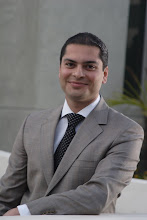According to the National Real Estate Investor magazine, “Global real estate investment by Arab investors will nearly double this year, to $22 billion, say analysts Jones Lang LaSalle. Arab investments in the U.S., however, may lag. Through May of this year, Middle East investment in the U.S. totaled $1.8 billion, far less than the $4.8 billion spent in the first five months of 2007 and $8.2 billion spent for the year, according to New York-based research firm Real Capital Analytics.”
One of the major factors responsible for the dwindling investments by Middle Eastern investors, mostly sovereign wealth funds, in the US is the fear of persistent economic downturn. The depreciating US Dollar is another factor contributing to reduced interest in US assets and real estate. Arab investors are finding more compelling opportunities in the emerging markets such as India and Eastern Europe. Arcapita, an investment firm managing capital of wealthy families in Bahrain, is an example of institutions active is such regions.
As for their US investments Arabs have had a policy shift, preferring to participate indirectly through private equity firms and other alternative vehicles. Despite the pessimism, however, capital has not stopped to flow into the US. GE, for example, recently announced that Mubadala Development Company is likely to become one of GE’s largest 10 institutional investors through the partnerships that the two are forming. Among other projects, the companies are working on initiatives in clean energy, finance, and aviation. The recent $800M purchase of a 75% interest in the Chrysler Building in New York by the Abu Dhabi Investment Council is another case in point.
These investments are taking place in an environment where most of the world’s largest sovereign wealth funds are scaling back their exposure to US Dollar. Middle Eastern sovereign funds have invested in several troubled US companies recently and have witnessed the value of their investments diminish. Moreover, they are not the only ones that are seeking alternative investment targets in the emerging markets and in Europe. The Chinese government fund is also in talks with European private equity firms in an effort to diversify and to reduce its exposure to the US Dollar. Furthermore, some private equity funds are instructed to increase their exposure to natural resources as a means of reducing their vulnerability to the US Dollar decline.
Some believe that the US Dollar is not very likely to decline much further against the Euro. That can be a part of why the Abu Dhabi Investment Authority has not yet taken any major steps away from the US Dollar. To others, however, it is only prudent to diversify away from US denominated assets to reduce the potential damage from “catching a falling knife.” While the US economy might be suffering from a credit crunch, falling real estate prices, weak currency, and inflation, it is still the largest economy in the world and that is not expected to change anytime soon. When the dust settles and the real estate and credit markets correct themselves, the US economy shall turn around to a healthy growth.
Tuesday, July 22, 2008
Saturday, July 12, 2008
Global Financial Turmoil and Glimmer of Hope in the Middle East
In recent months global banks have increasingly shifted their resources and management to the Middle East in the face of financial turmoil elsewhere. Deutsche Bank was the latest to announce the move of senior banker, Christophe Laing, to the Dubai International Financial Center. Laing is head of Deutsche Bank’s equity capital markets for the Middle East and Africa as well as Eastern Europe.
Financial institutions around the world have written down around $400 billion as a result of the credit crunch and have raised $300 billion to repair their balance sheets. Shifting to the Middle East and committing to the oil-rich region is an obvious move to become closer to the riches of funds and governments in the area.
Others who have recently appointed senior management to the Middle East are Lehman Brothers, Citi, and Merrill Lynch. The major incentive is being close to sovereign wealth funds and their seemingly endless pool of capital. Estimates show that these funds shall grow to $15 trillion by 2016.
Financial institutions around the world have written down around $400 billion as a result of the credit crunch and have raised $300 billion to repair their balance sheets. Shifting to the Middle East and committing to the oil-rich region is an obvious move to become closer to the riches of funds and governments in the area.
Others who have recently appointed senior management to the Middle East are Lehman Brothers, Citi, and Merrill Lynch. The major incentive is being close to sovereign wealth funds and their seemingly endless pool of capital. Estimates show that these funds shall grow to $15 trillion by 2016.
Subscribe to:
Posts (Atom)

